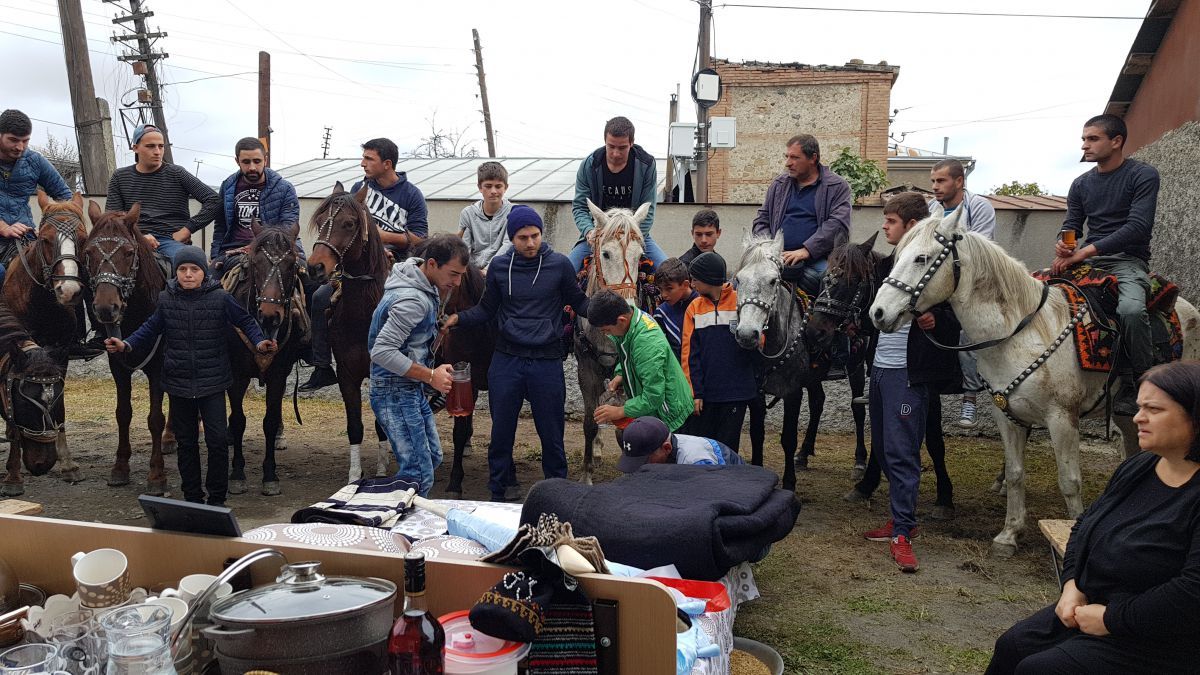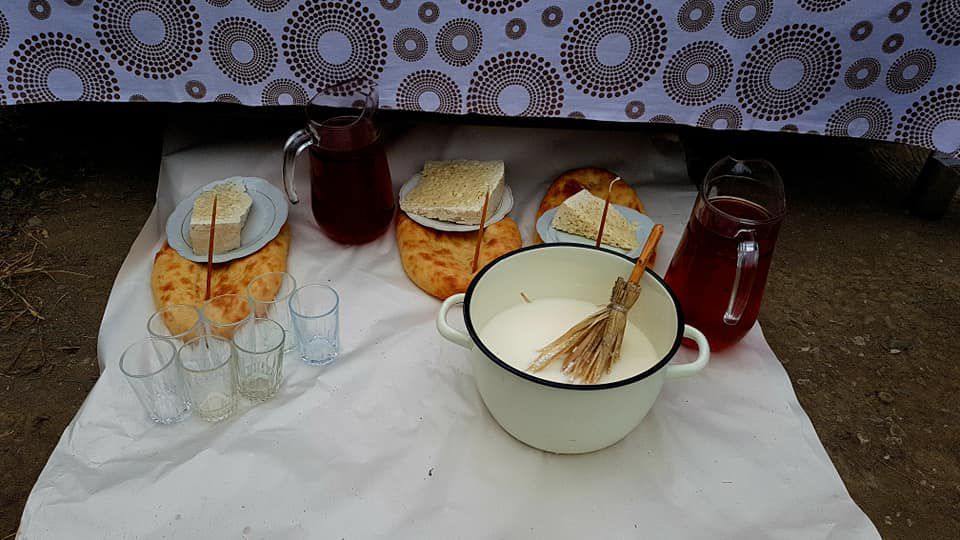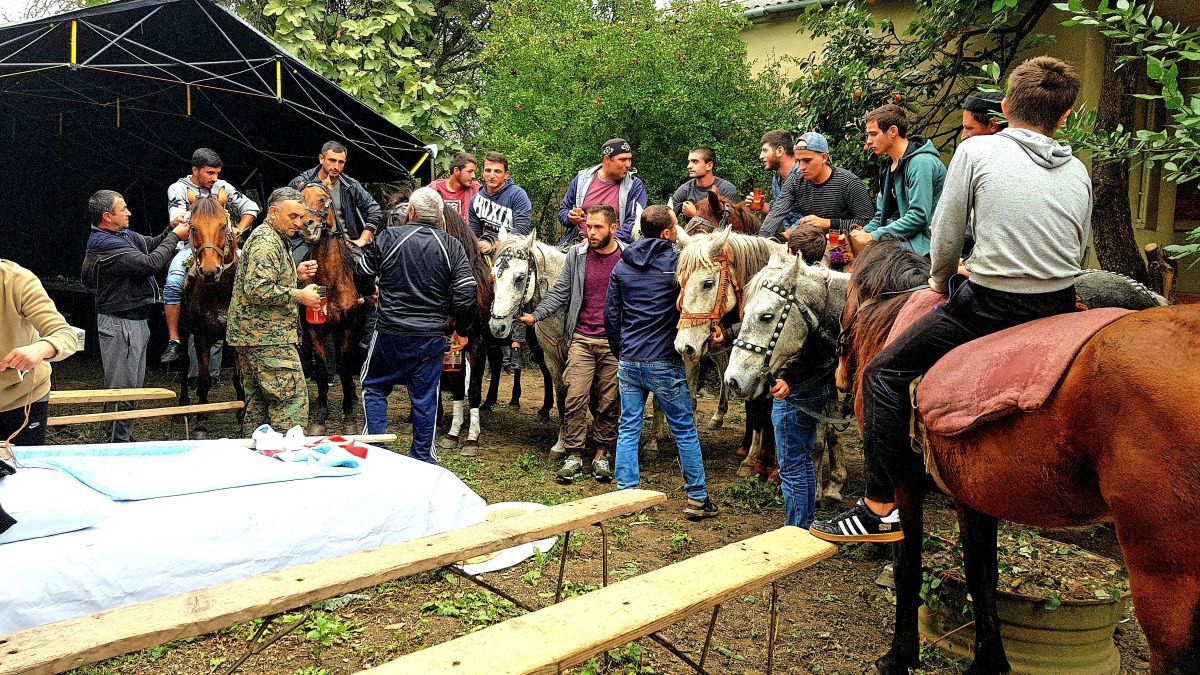
Cultural Heritage
Transport

Dalaoba
“Dalaoba” is a funeral service for men that has been and continues to be performed only if the anniversary expenses are paid by horse racing. The motive of the Tush tradition is a monologue, and the text is a sixteen-line rhyming poem. In content, Dalaoba represents glorification of the deeds of the deceased and and the remorse of his death.
Relatives are usually notified of the anniversary expenses a week in advance. Some will be invited on horseback. A "flask" of the deceased is brought out into the yard ("flask" is a bed with clothes and utensils in the name of the deceased, all this is given out by the family after the blessing of the priest), around which the mourning women sit. On a canvas laid down on the floor, three loaves of bread are placed separately, on which lies a piece of cooked meat. In front of the flask, barley is placed on the canvas and there is a dovian bacan (jar) with a kojot (corn pod) placed inside.


The alarm on the left side will rest. A pair of socks, quilts, quilts and a hand-stitched tobacco bag hang on the alarm. Horsemen stand in front of the fold laid in this way. Among them, on the "horse of the soul" made with a beautiful saddle, which also has a sack hanging, sits"Modalave" (participants of Dalaoba). The other horses are also ready for the race. One of them is a cousin's horse. All the riders must have an alluding bowl. One of the mourners gets up and puts a handful of barley in the horse's legs, kicks “Dovi “from the bucket (jar) to the chest. The mourner mentions the soul of the deceased and begins to weep, while others join in.





